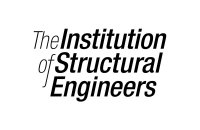
The course explains the approach to designing a ground investigation and explains how a ground investigation is carried out with different in situ tests and sampling methods, followed by a discussion of laboratory tests and interpretation of results. The course will be based mainly on BS 5930: 2015 Code of practice for site investigations and Eurocode 7.
Also available as an online training course.
Please note the online version of this training course will be split into modules.
Overview:
Ground investigation is an essential part of any construction project. The objectives of a ground investigation must be clearly defined according to the nature of the project and its site. The investigation must be designed and executed appropriately so that it will yield the quantity and quality information on ground and ground water conditions necessary for economic design and construction.
Aims & Objectives:
The course aims to give Civil Engineers, geotechnical engineers/engineering geologists and anyone who has to specify ground investigations a practical understanding of the planning and design of ground investigations, the spectrum of investigation techniques available, the use of the ICE Specification for Ground Investigation, laboratory test scheduling, and interpretation of results.
Course Outline:
- Why do a ground investigation?
- A review of ground investigation procedures
- Methods of in situ testing and sampling of soil and rock,
- Discussion of various geotechnical and chemical soil tests
- Interpretation of soil test results and classification of soils for reuse
- Discussion on reporting (factual, interpretative and feedback)
Mode of Delivery:
The course will be delivered through:
- Presentation on the basic principles on each topic
- Interactive exercises following each topic
- Open discussion
- Feedback Activity
Benefits of Attending:
On completion of this course, delegates will be able to:
- Plan and define the scope of a ground investigation
- Distinguish the different ground investigation techniques for soil and rock
- Understand the application of various in-situ testing techniques
- Compile Specifications and Bills of Quantity for ground Investigations
- Determine the scope laboratory tests
- Identify and describe different soil types and basic classification
- Appreciate ground condition risks
- Interpret in-situ and laboratory test data
Intended For:
Civil Engineers, Structural Engineers, Geotechnical engineers/engineering geologists and anyone who needs to plan ground investigations.
Pre-Course Requirements:
None








